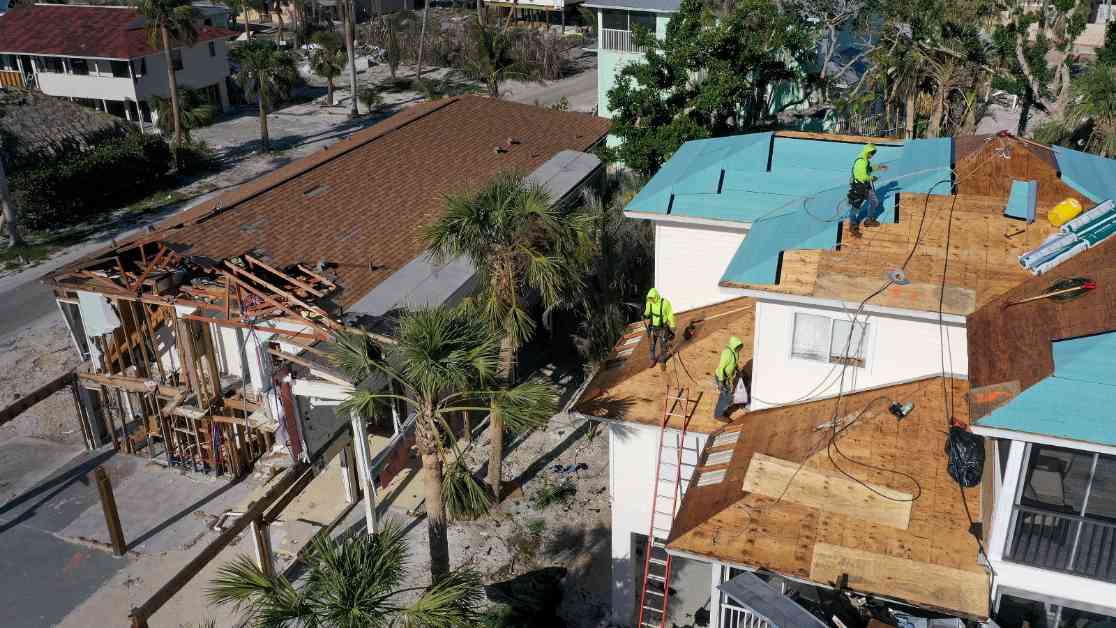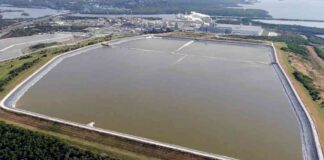Trump’s stringent immigration policies are not just affecting the lives of immigrants seeking a better future in the US but are also casting a dark shadow over disaster recovery efforts following devastating fires, hurricanes, and floods that have wreaked havoc across the nation. The impact of Trump’s immigration crackdown on disaster recovery is a pressing issue that could lead to chaos in communities struggling to rebuild, as highlighted by a leading expert in the field.
Saket Soni, the director of Resilience Force, a labor organization with nearly 4,000 members, has sounded the alarm on the critical role that immigrant workers play in the recovery process after calamities like wildfires, floods, and hurricanes. As skilled disaster-restoration workers, immigrants form the backbone of the workforce that is instrumental in cleaning up and reconstructing American communities ravaged by natural disasters. Their expertise and dedication are vital to the recovery efforts, making them indispensable in restoring normalcy in the wake of catastrophic events.
The disaster industry in the US is witnessing significant growth due to the escalating frequency and intensity of climate-driven extreme weather incidents, making recovery and rebuilding operations more lucrative. The resilience workforce, comprising tens of thousands of predominantly foreign-born workers from various countries, including Latin America, the Caribbean, India, and the Philippines, is a diverse group of skilled individuals who contribute immensely to the restoration process. This contingent includes undocumented immigrants, asylum seekers, settled refugees, and those with temporary protected status, all of whom are essential to the recovery ecosystem.
Trump’s aggressive approach to immigration, characterized by executive orders and policy initiatives, poses a grave threat to the stability of the immigration and asylum system, jeopardizing the availability of labor in critical sectors such as construction, food, hospitality, and disaster recovery. The ramifications of mass deportations and workplace raids could exacerbate labor shortages and hinder the rebuilding efforts in disaster-affected regions, prolonging the suffering of victims and impeding the restoration of their homes and livelihoods.
Amidst the challenges faced by families grappling with the aftermath of natural disasters, the specter of labor shortages and funding constraints looms large. Trump’s policy proposals, including the potential closure of the Federal Emergency Management Agency (FEMA), could exacerbate these issues, leaving affected communities vulnerable and ill-equipped to deal with the monumental task of recovering from catastrophic events. The recent visit by Trump to North Carolina, where the devastation caused by Hurricane Helene amounted to nearly $60 billion, underscored the urgent need for robust federal assistance to support recovery efforts in disaster-stricken areas.
The decision to potentially dismantle FEMA, as hinted by Trump, has raised concerns about the practicality and feasibility of shifting the burden of disaster response and recovery to individual states. The crucial role played by FEMA in providing emergency aid, financial assistance, and logistical support to disaster-affected populations cannot be understated, and any move to diminish its scope or effectiveness would have far-reaching implications for the nation’s disaster management framework.
The escalation of workplace raids and arrests by Immigration and Customs Enforcement (ICE) further compounds the challenges faced by immigrant restoration workers, many of whom operate in precarious conditions and face constant threats of deportation. The fear and uncertainty gripping these workers, coupled with the looming specter of mass deportations, jeopardize the stability and continuity of disaster recovery efforts, leaving communities vulnerable and exposed to prolonged suffering.
The resilience workforce, which has expanded significantly since the aftermath of Hurricane Katrina in 2005, represents a critical resource in the nation’s efforts to rebuild and recover from natural disasters. The resilience and tenacity displayed by immigrant restoration workers in the face of adversity highlight their unwavering commitment to helping communities in distress, underscoring the indispensable role they play in the recovery process. As the US grapples with the increasing frequency and severity of climate-related disasters, the need for a skilled and dedicated workforce to support recovery efforts has never been more urgent.
The future of disaster recovery in the US hinges on the ability of policymakers, stakeholders, and communities to recognize the invaluable contributions of immigrant workers and provide them with the support and protection they need to continue their vital work. The human cost of depriving these workers of their livelihood and security is immeasurable, and the consequences of undermining their role in the recovery process could have far-reaching implications for the nation’s resilience in the face of future disasters. As we navigate the complex challenges posed by climate change and natural disasters, it is imperative that we acknowledge and appreciate the critical role played by immigrant restoration workers in safeguarding our communities and rebuilding our nation.














